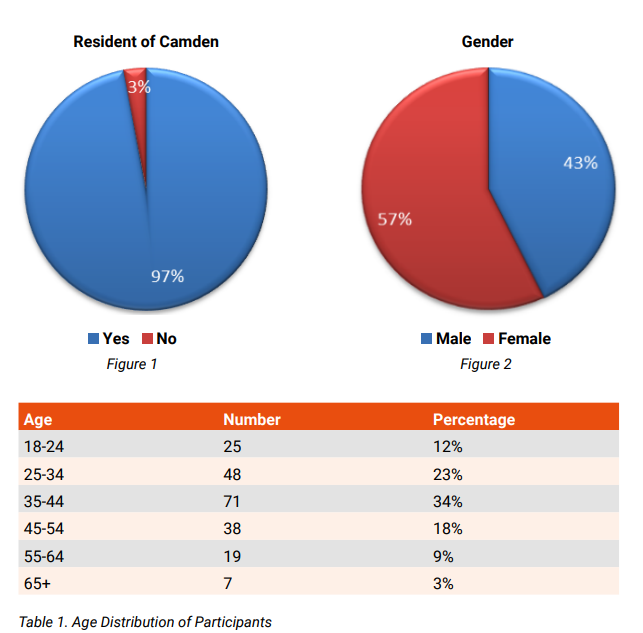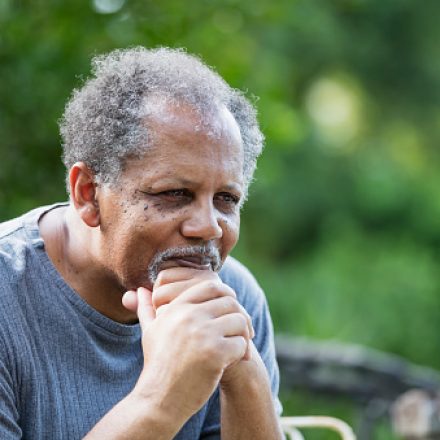The Covid-19 pandemic has had an unprecedented impact on the health and wealth of many
worldwide. However, it is evident that the risks and outcomes of the pandemic are not equal
across all members of society, with those from BAME communities disproportionately affected.
As a result of Covid-19, an already disadvantaged community were further troubled with fears
of higher mortality rates, the death of their loved ones, unemployment, and poverty; with each
of these dynamics being significant risk factors that influence the mental health of individuals.
The extended lockdown and its associated economic downturn have
negatively impacted the mental health of many people
The survey included 208 participants, of which 97% were residents of the London borough of
Camden and 3% were non-residents (See Fig.1). In terms of gender, 43% of the participants were
males and 57% were females. The survey targeted individuals with more than 18 years of age (See
Fig.2). The age distribution was captured as illustrated in Table 1: 58% of the participants were
married, 32% were single, 16% were separated, and 5% were widowed (See Fig.3). Concerning the
period of living in the United Kingdom, 37% of the participants indicated that they were born in the
U.K, 7% have lived in the country between 5 to 10 years, 75% have lived in the country for over ten
years, and only 1% having lived in the country for less than five years.

Worrying is the common theme that is captured in the survey indicating increased stress and
anxiety levels among populations resulting from Covid-19. A majority of the participants indicated
that they were worried because of the various aspects brought upon by the Covid-19 pandemic.
In their study, Holmes et al. (2020) established that anxiety was one of the significant themes
demonstrating widespread uncertainty.
Since Covid-19 has subjected people to intense pressure and fears, the government needs
to implement better measures to resolve mental health concerns. Firstly, the government should
develop intervention tools to provide social support for people that have lost their jobs and income.

